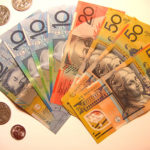The euro was losing ground against the US dollar on Monday, as political instability in Italy persisted and after a report said that German retail sales increased less than projected in August.
EUR/USD reached a session low at 1.3477 at 6:58 GMT, after which consolidation followed at 1.3486, falling 0.27% for the day. Support was likely to be received at September 25th low, 1.3460, while resistance was to be met at September 25th high, 1.3536.
The common currency was put under selling pressure today, after Silvio Berlusconi said on Saturday that he was intending to pull his ministers out of current Prime Minister Enrico Letta’s coalition government and also called for new elections to be conducted. Letta, on the other hand, said that he will request a confidence vote for October 2nd. Corriere Della Sera imparted that Letta needs 24 votes in the Senate in order to ensure a new majority without Berlusconi. To do so, Italian Prime Minister must achieve victory over opposition lawmakers, or make sure that members of Berlusconi’s People of Liberty party abandon their leader, Bloomberg reported. “Protracted political impasse along with any delays in the formation of the grand coalition in Germany do not bode well for swift euro-area policy decisions,” Fabio Fois, an analyst with Barclays Plc (BARC), said in a research report, cited by the same media. The end of the Letta-Berlusconi coalition “should keep volatility on the Italian government securities market high.”
Italys 10-year bond yield rose 18 basis points on September 26th to September 27th, as Silvio Berlusconi indicated that he will exit the coalition.
In addition, earlier today it became clear that retail sales in Germany increased at a slower than expected pace in August compared to July, following two consecutive months of decrease. Retail sales dropped 0.5% in August on a monthly basis, as this was significantly below Mays result. Experts had anticipated that sales will record a 0.8% gain. In August 2013 compared to August 2012 retail sales increased 0.3%, while preliminary estimates pointed a 0.6% gain. Such disappointing sales data confounded the increasing consumer confidence, as the latter hit its highest point in six years due to improving labor market. However, some experts suggested that it may be still too early to say in what way this retail sales figure will affect consumer spending during the third quarter of the year. Retail sales contribute to about 25% of the overall spending in Germany.
Another report showed that the French index of producer prices slowed down in August, increasing by 0.3% on a monthly basis, after the 0.7% advance in July, as support was provided by rising prices of energy products. On annual basis, the index dropped 0.4% in August. Prices of energy products rose 1.1% in August compared to July, while prices of refined energy products rose 1.0% during the same period. The remaining components, that comprise the index of producer prices were almost unchanged.
Meanwhile, the euro fell to a three-week low against the Japanese yen, as EUR/JPY cross lost 0.52% on a daily basis to trade at 132.16 at 8:00 GMT. EUR/GBP pair was losing 0.12% to trade at 0.8368 at 8:00 GMT.





